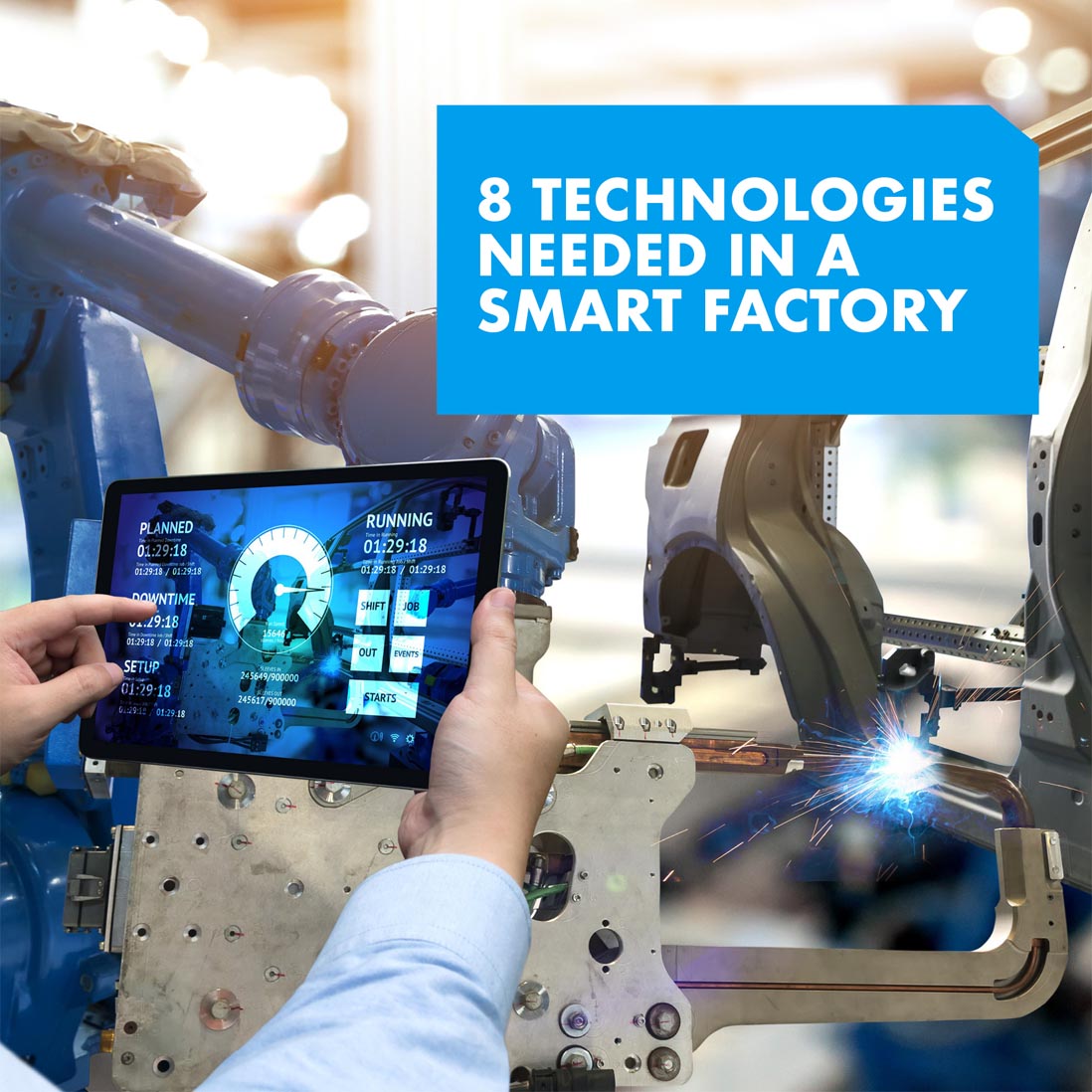
8 Technologies Needed in a Smart Factory
Have you ever heard the term industry 4.0? Industry 4.0 is the name of the latest trend in automation and data exchange in factory technology. Although the term has been around for a long time, this topic is still being discussed frequently today, especially in Indonesia.
Industry 4.0 produces a smart factory concept. The National Institute of Standards and Technology (NIST) defines a Smart factory as a system that is fully integrated with technology. With this system, Smart Factory can meet changing demands and conditions in the factory, whether related to the supply chain or customer needs.
Smart Factory has the advantage that the company can make predictions quickly, adapt and serve according to the needs of its customers. Because Smart Factory is a collection of big data that can be accessed quickly, of course, managing data with the help of AI is very easy. However, regardless of the speed in data processing, Smart Factory will be successful if the company saves quality data more optimally and reduces unqualified data.
What Technology Does Smart Factory Need?
By definition, a smart factory is identical to the use of technology. Here are some of the technologies needed to build a smart factory:
-
Internet of Things (IoT)
Internet of Things includes the ability of an object that can transfer data through a network without the need for human interaction. IoT allows a system to be connected and integrated between one device and another.
-
Big Data and Cloud Computing
Big Data is a term used to describe a large amount or volume of data. The data referred to here includes structured data and unstructured data. Nowadays, Big Data is very important and needed because it can determine the direction of the business.
Cloud computing is a technology that functions as a center for data management and internet-based applications. So, the data center is stored digitally through this technology. This reduces the risk of losing data due to computer damage or viruses. With a complete security system, cloud computing is the safest place to store all company data.
-
Augmented Reality
Augmented Reality or AR is often confused with virtual reality (VR). Though AR and VR are two different things. VR is a technology that is a completely virtual world. Meanwhile, AR is a technology that combines or adds to the surrounding reality with virtual objects, either two-dimensional or three-dimensional. An example of an existing AR is Pokemon Go.
- Additive Manufacturing
Often referred to as a 3D printer, a technology that allows machines to print 3D objects according to the designs that have been made. Later, the resulting object will have the same shape and size as the actual design.
- Simulation
A smart factory requires technology that can be used as a simulation. Through this technology, companies can test the results of their products. Not only that, but this simulation technology can also be designed to provide training, education, safety engineering, and various other purposes.
- System Integration
The technology used by a smart factory is not only one, but many technologies. Therefore, we need a system that can integrate all existing systems, both physically and functionally. This is done to facilitate supervision and operation.
Skills Required
The concept of the fully automatic Smart Factory has caused a lot of workforces to be replaced by machines. But on the other hand, many new job opportunities were created from this industrial revolution.
Based on the explanation of the article on the World Economic Forum page, to be able to adapt to the changes brought about by the 4.0 industrial revolution, a worker must have abilities that cannot be done by machines. Soft skills are the key.
The World Economic Forum also released 10 skills, namely complex problem solving, critical thinking, creativity, people management, coordinating with other, emotional intelligence, judgment and decision making, service orientation, negotiation, also cognitive flexibility.
About SGU
SWISS GERMAN UNIVERSITY (SGU) is an international university in Indonesia, was established in 2000 as a joint effort between Indonesia, Germany, Switzerland, and Austria. We are the pioneer in offering international curricula in Indonesia. Qualified students can graduate with a Double Degree from Indonesia and Germany, which SGU provides in cooperation with partner universities; surely a valuable tool for your future careers. Ever since its establishment, SGU has been dedicated to delivering quality education in line with international standards and aims to develop skilled professionals who meet the demands of the industry. In order to achieve its objectives, SGU offers quality-oriented learning through 12 Bachelor’s Degree Programs and 4 Master’s Degree Programs ranging from Engineering, Information Technology, and Business to Life Sciences and Social Sciences. Furthermore, with small class sizes, and with English as the medium of instruction, you can look forward to pursuing your tertiary education and degree with full confidence.
Back

